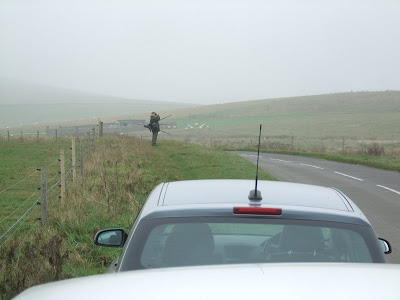Some months ago Capt. Ahab reviewed a
1963 British Waterways cruising guide. Last week I was given an early Nicholson guide, first published 1978; second revised edition 1981. Comparisons between then and now are fascinating.
1978/1981 edition (cover price £1.95) on left; 1997 edition (£9.99) on right
To start with, the size. In 80 pages in a slim paperback all the "Midlands" waterways are covered. Just two other volumes cover "South" and "North". And the text size is even smaller than that of the current Nicholsons - even with glasses I have to use a magnifying glass as well! There are some similarities, though: there's the same predominate red cover; and Derek Pratt's photographs are still used, albeit in colour these days.
But it's in the text where much of the interest lies. In the four pages given over to cruising information the section headed "Running aground" is one of the longest, ending with:
"Remember that winding holes are often silted up: do not go further in than you have to."
Advice is given about what to do when meeting a working boat, still possible then, but what about this sentence?
"If you meet a boat being towed from the bank, pass it on the outside rather than intercept the towing line."
How many horse-drawn boats were around at the end of the 1970s? Perhaps bow-hauling (of broken-down leisure boats) was common. Actually this advice is still in the modern guide, but the long treatise on what to do when you run aground has gone.
There's a list of daily checks which would be regarded as over the top now. Anyone following this religiously would be spending half-an-hour in the engine hole every morning (perhaps they should be changing the oil while they're at it!)
Here's the list (pruned down slightly):
- Check the oil level in the engine
- Check the fuel level in the tank
- If the engine is water-cooled check that the filter near the intake is clean and weed free
- Check the level of distilled water in the battery, and ensure that it is charging correctly
- Lubricate any parts of the engine, gearbox or steering that need daily attention
- Check that the propeller is free of weeds, wire, plastic bags and any other rubbish
It continues on the prop clearance theme:
"Although this is an unpleasant task, it is a constant necessity and will remain so as long as canals continue to be used as public rubbish dumps. The propeller and the water filter should be checked whenever there is any suspicion of obstruction or overheating - which may mean several times a day."
In those days it seems that there were more petrol engines than diesel engines powering boats. The guide suggests that cruise planning should take into account where the canal goes near roadside filling stations.
"Diesel powered boats pose more of a problem in obtaining fuel although their range is generally greater than that of petrol powered craft. [...] The tax-free diesel [...] can only be sold by boatyards, which are still few and far between on the canals."
Today there's just one line: "Hire craft usually carry fuel sufficient for your rental period."
Rubbish in the canals is a constant moan for the 1978 guide:
"Some canals are in a poor state today because they have long been misused as unofficial dumps for rubbish, especially in towns. Out of sight is only out of mind until some object is tangled round your propeller. So keep all rubbish until you can dispose of it at a refuse disposal point. (See the maps.)"
And that's where I'll stop for now - the maps themselves can wait until tomorrow.








































































